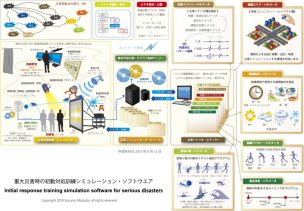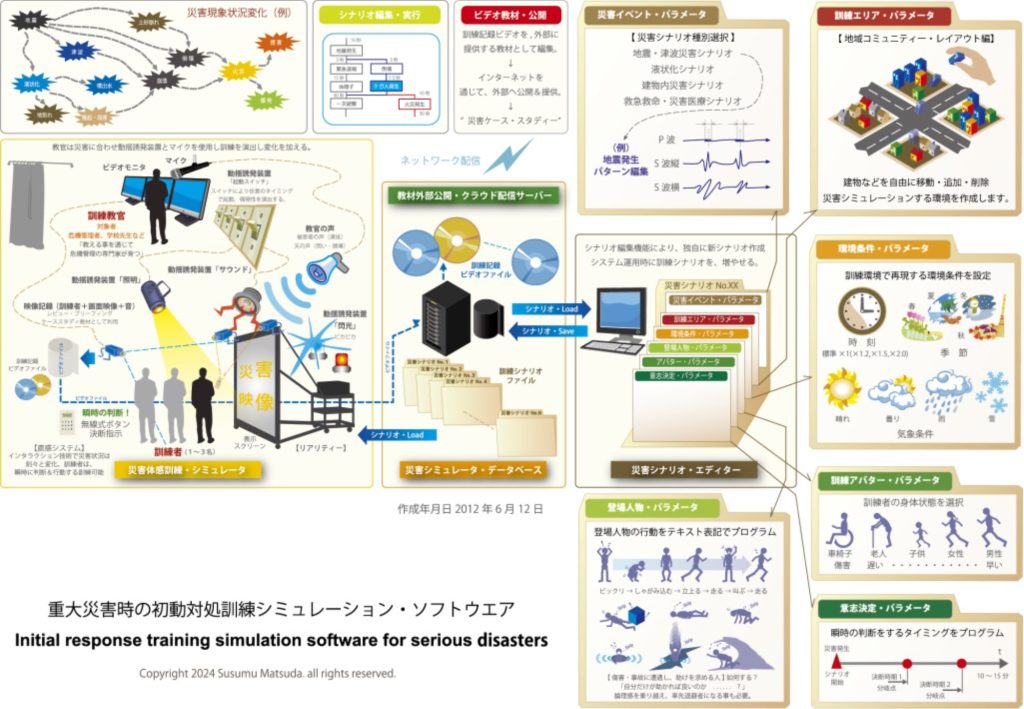
Japan exists at the boundary between the earth’s tectonic plates and is not in an environment where it can avoid natural disasters. Therefore, it is necessary to continue to regularly increase people’s risk sensitivity to disasters, and at the same time, to create a means to calmly judge the danger and encourage life-saving evasive actions when a disaster occurs. These need to be trained on a regular basis and used in the event of a disaster. In order to seriously learn avoidance behavior, don’t let the training become someone else’s problem. Immerse yourself in the training environment. It is necessary for the experience to progress through intuitive operation. Training scenarios must be similar to the environment in which each person is placed and must be easy to learn by creating a large number of cases. At the same time, the training scenario should automatically change the scenario according to the judgment of the person experiencing it, and it is necessary for the person to learn that if the judgment is delayed, the situation will worsen. We have developed a training system that incorporates the lessons learned from past disasters: Do not be bogged down by assumptions. “Always do your best,” and “Take the initiative to take action and evacuate.”

VR experience scenarios are generally constructed using descriptive programming. In many cases, crisis managers who have knowledge of disasters do not have knowledge of programming, and programming is a barrier to building training scenarios. In order to enable even people without programming knowledge to easily construct disaster scenarios, we have developed and realized a scenario editing function that allows you to complete a program simply by operating the GUI using pre-prepared 3D data and simulation modules. did. This allows crisis managers to easily increase the number of disaster case studies. The training instructor will learn crisis management more practically by operating the “experiential device for training disaster judgment behavior” featured in episode 300, and teaching at the same time as directing the disaster drill, while learning crisis management in a more practical manner. It is a system that also aims to request a house.